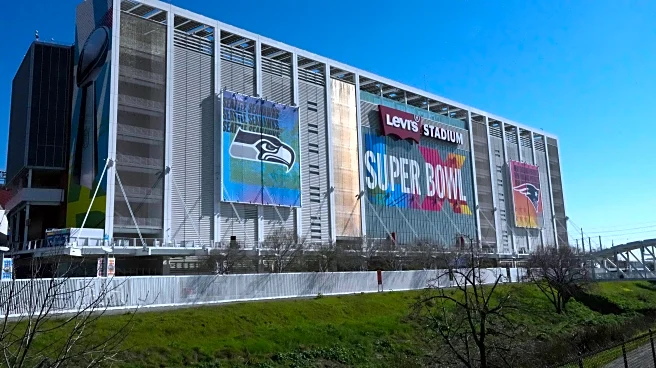What is the story about?
What's Happening?
The Trump administration is reviving the practice of conducting 'neighborhood checks' for immigrants applying for U.S. citizenship. This initiative, outlined in a government memo, aims to scrutinize applicants more thoroughly by involving on-the-ground investigations conducted by U.S. Citizenship and Immigration Services (USCIS) officials. These checks may include interviews with neighbors and coworkers to assess the applicant's moral character and adherence to U.S. constitutional principles. The practice, dormant since 1991, was previously waived in favor of FBI background checks. The memo directs USCIS officers to decide on the necessity of these checks based on the information provided by applicants, who are encouraged to submit testimonial letters proactively. The administration argues that these measures are essential to combat fraud and ensure that only qualified individuals receive citizenship.
Why It's Important?
The reinstatement of neighborhood checks represents a significant shift in U.S. immigration policy, emphasizing stricter vetting processes for citizenship applicants. This move could impact the legal immigration system by potentially discouraging individuals from pursuing naturalization due to the perceived intimidation of the process. Critics argue that the policy may create a chilling effect among immigrants, both legal and illegal, while proponents believe it strengthens the integrity of the citizenship process. The decision reflects broader efforts by the Trump administration to tighten immigration controls, which could affect the demographic composition of future U.S. citizens and influence public sentiment on immigration.
What's Next?
USCIS officers will begin implementing the neighborhood checks, determining their necessity on a case-by-case basis. Applicants may face increased scrutiny and potential delays in the naturalization process. The administration's focus on 'good moral character' and 'anti-American' activities will likely lead to further policy adjustments in immigration vetting. Stakeholders, including immigrant advocacy groups, may challenge these measures, arguing they are overly burdensome and discriminatory. The policy's impact on immigration rates and community relations will be closely monitored.
Beyond the Headlines
The revival of neighborhood checks raises ethical questions about privacy and the role of community surveillance in government processes. It may also lead to legal challenges regarding the fairness and transparency of the citizenship application process. Long-term, this policy could influence cultural perceptions of immigrants and their integration into American society, potentially affecting social cohesion and public trust in government institutions.















